April 15, 2025
From augmented reality to robots, Mizzou Industrial Engineering students learn with leading edge tools.
In the process of gaining a world-class education, Mizzou Industrial Engineering students get hands-on learning opportunities with the latest technology.
“Industrial engineering students who work with tools like artificial intelligence, drones and edge computing devices acquire valuable skills that are highly relevant in today’s tech-driven world,” Jim Noble, chair of the Department of Industrial and Systems Engineering, said. “Such technologies enhance their problem-solving, critical thinking and technical abilities, making them more competitive in today’s rapidly evolving job market.”
Emerging technologies are everywhere at Mizzou Engineering. Here are just a few recent examples from Industrial and Systems Engineering.
Artificial intelligence (AI)
Assistant Professor Suchithra Rajendran leverages generative artificial intelligence (AI) in her course ISE 4350: Production and Operations Analysis. Students interact with ChatGPT in a dynamic supply chain network simulation, performing demand forecasting, supplier negotiation and production planning.
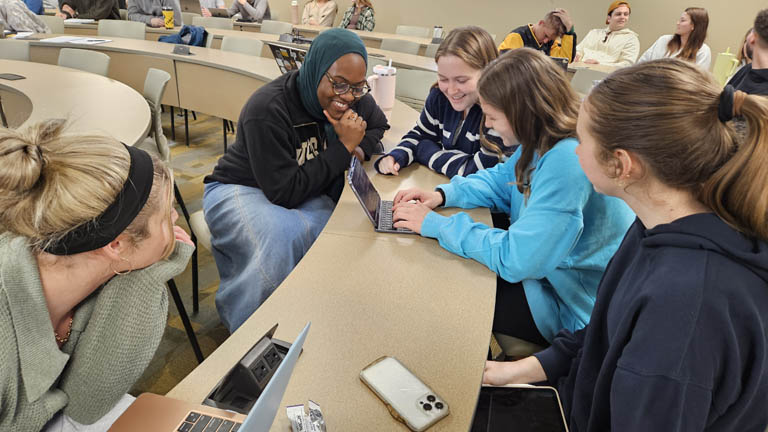
“This allows them to explore decision-making under uncertainty, analyze trade-offs and receive immediate feedback — all within a digitally augmented, team-based environment,” Rajendran said. “It supports critical thinking and prepares them to work with the AI-powered decision-support systems increasingly used in modern operations and supply chain management.”
Augmented reality (AR)
In the Motion-Capture with Eye-Tracking and Augmented Reality Lab at Mizzou Engineering, students employ AR to highlight the importance of maintaining a safe posture. Visual aids and prompts guide users toward optimal techniques, enhancing safety and efficiency.
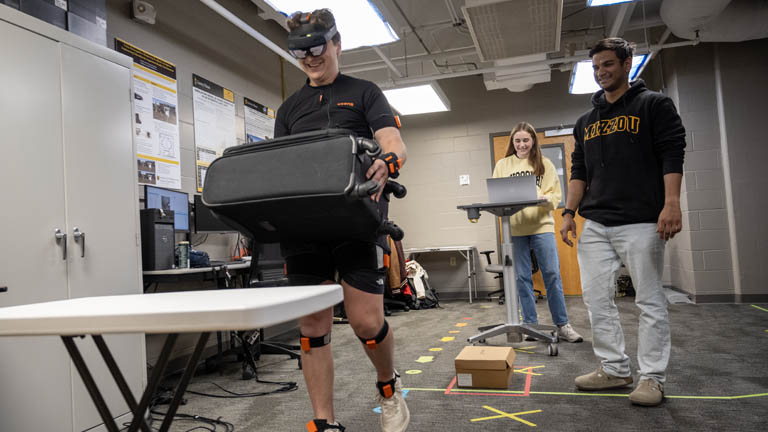
“The AR system monitors the user’s posture using a motion capture system,” Associate Professor Jung Hyup Kim said. “As the worker lifts a suitcase, the virtual instructor provides immediate and constructive feedback.”
Drones and robots
Programmable educational drones and robots help Associate Professor Sharan Srinivas teach path planning/routing, computer vision/machine vision and industrial automation in ISE 4410: Data Engineering and Predictive Modeling and ISE 4370: Service Systems Engineering and Management.
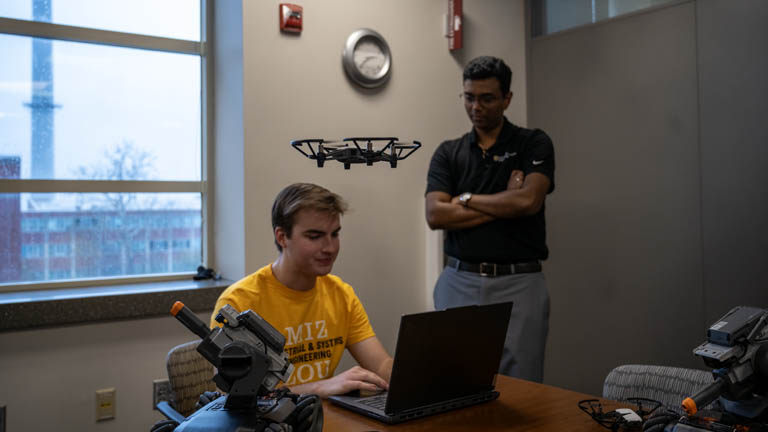
“Students may be addressing complex transportation challenges, optimizing drone navigation for logistics applications, or employing machine vision to conduct inventory cycle counts by scanning warehouse shelves,” Srinivas said. “At the same time, they’re gaining practical insights into emerging technologies.”
Students in Assistant Professor Hyeong Suk Na’s course ISE 4210: Deterministic Models in Operations Research program quadruped robots to find the most efficient route from a starting point to a series of locations.
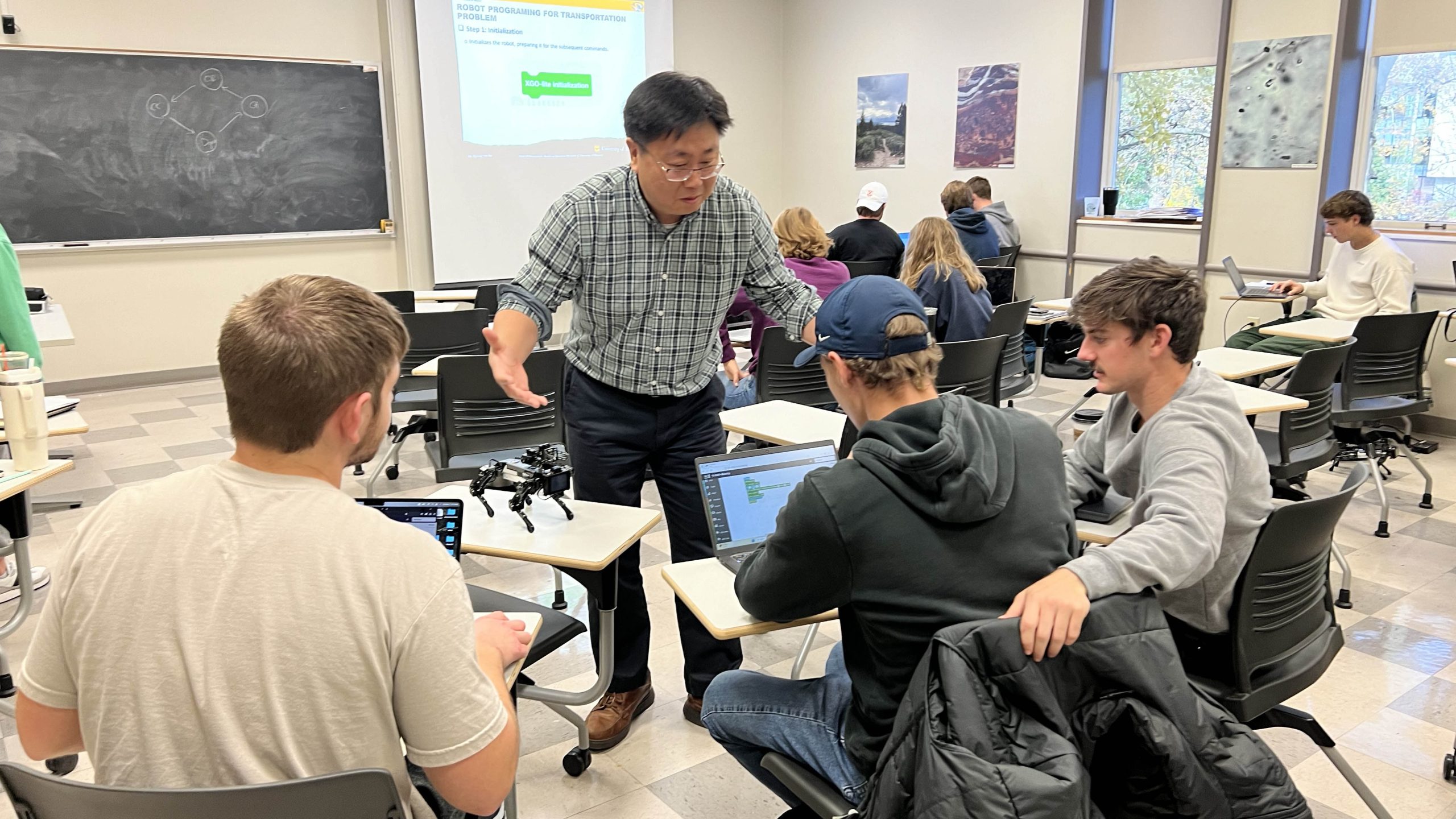
“They apply principles of engineering, science and mathematics to address complex transportation challenges,” Na said. “Not only do they learn to analyze and interpret results, but they also gain experience in collaborative problem-solving, enhancing their teamwork and leadership skills.”
Edge computing devices
Students in Srinivas’s course ISE 4610: Quality Engineering and Analytics work with edge computing devices — hardware like Raspberry PI — that process data locally. These devices interface with various sensors, including temperature and presence detectors, enabling students to collect and analyze real-time data for quality monitoring and process control applications.
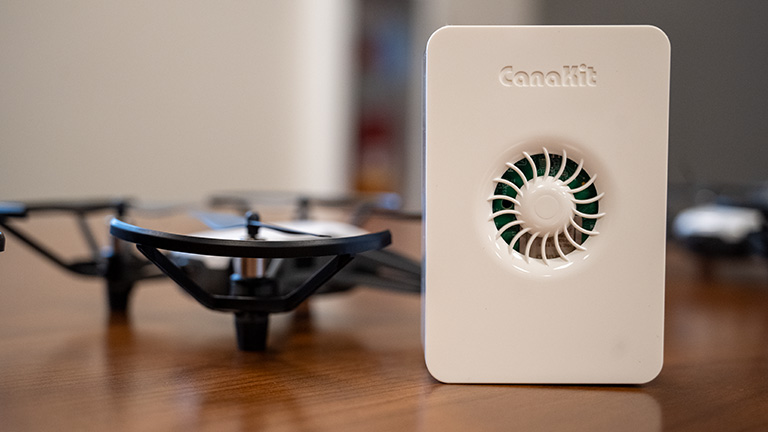
“We plan to use Raspberry Pi devices with vibration sensors to simulate real-time fault detection in a production setting,” Srinivas said. “Students examine sensor data to detect patterns indicative of equipment wear or misalignment.”
Industrial engineering students are using their access to technology to inform their careers.
“Mizzou Industrial Engineering students are learning to design, program and optimize systems, improving their adaptability and innovation,” Noble said. “Exposure to such cutting-edge tools fosters creativity, enhances collaboration and makes students more versatile engineers.”
Gain hands-on experience using cutting-edge technology. Choose Mizzou Engineering!